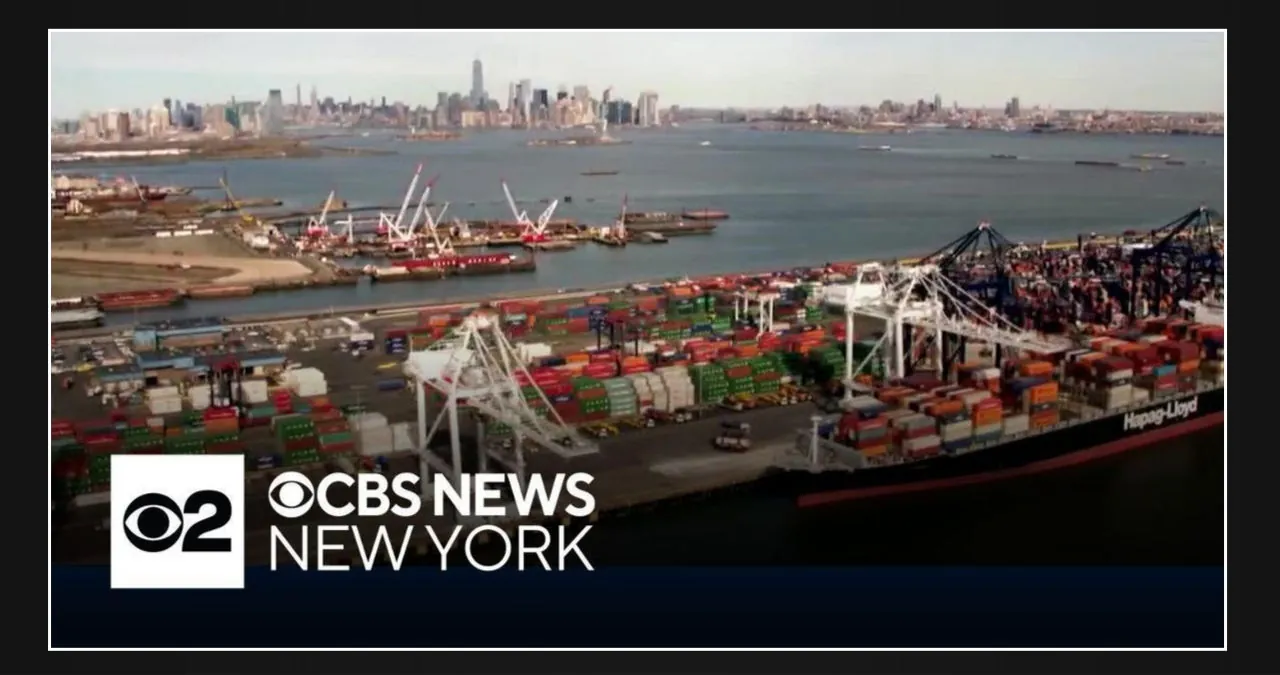A dockworker strike on the East Coast could occur within the next 24 hours.
According to experts, if such a strike were to occur, the U.S. economy would suffer significant losses amounting to billions of dollars per day. This would have a detrimental impact on various stakeholders, including businesses, workers, and consumers.
The current contract is set to expire on Monday night at midnight, leaving a deadline for reaching a new deal. A strike like this would have a significant impact on the ports in New York and New Jersey. On Monday, Gov. Kathy Hochul addressed the media at Port Authority headquarters, discussing the potential strike.
According to Hochul, a strike is expected to occur before midnight tonight.
Thousands of dockworkers on the East and Gulf coasts are prepared to go on strike in the event that the International Longshoreman’s Association (ILA) and the U.S. Maritime Alliance (USMX) fail to reach an agreement. This includes a staggering 4,500 workers in the New York and New Jersey area.
“The stakes are incredibly high, with a significant potential for disruption,” emphasized Hochul.
Hochul stated that the state has been diligently working to swiftly unload 100,000 cargo containers from ships, recognizing the pressing urgency of the situation.
According to Hochul, extensive preparations have been made by both the government and manufacturers in anticipation of a potential strike. She expresses hope that these preparations will help prevent the shortages that were experienced during the pandemic.
According to Hochul, the focus is on ensuring a stable food supply and there is no need for unnecessary panic buying. She reassures the public that there will be no disruptions to the food supply.
According to Hochul, New York is fully prepared for a strike. She emphasized the importance of government preparations for the worst-case scenario. However, she also provided reassurance that there won’t be any shortages of essential goods in the near future. Hochul mentioned that people do not need to panic or rush to the grocery store to stockpile goods, as was seen during the pandemic.
According to her, Canada, California, and Mexico are the main sources of New York’s food supply.
The potential strike has the potential to impact the supply chain and increase the cost of construction materials. It may also cause disruptions in the import of specific goods, such as certain types of fish and fruits.
According to Hochul, the supply of home heating oil, gas, and diesel is not expected to be affected in New York City. Additionally, municipal waste operations will continue as usual.
According to Hochul, it is advisable to contact your dealer if you are anticipating getting a new car this week. She mentioned that there is a possibility that it may not be available for the next few weeks.
She encouraged both parties to come to an agreement, while also requesting New Yorkers to remain calm in case they don’t. According to Matthew Shay, CEO of the National Retail Federation, a scarcity of products creates a ripple effect.
According to Shay, raising prices at a time when the economy is just starting to recover from inflation would be detrimental. He emphasized that the economy does not need any further price increases.
Abdul Jawad, owner of a Foodtown in Prospect Heights, confidently predicts that prices will undoubtedly rise. He expresses concern about his banana shelf, which may be completely empty within a week of the strike, as all his bananas are imported.
According to a memo obtained by CBS News, the Port Authority made the decision to extend the operating hours of terminals over the weekend. The main goal of this move was to expedite the transportation of cargo before a potential work stoppage. In response to this situation, distributors have taken measures to mitigate the impact by stockpiling certain products.
Hochul expressed that she doesn’t anticipate any significant food shortages.
New York Governor Kathy Hochul issued a strong warning, urging individuals and businesses to refrain from taking any actions that could lead to price hikes. She emphasized the importance of avoiding any extraordinary increases in prices in the wake of the strike. Hochul’s message serves as a cautionary reminder to maintain stability and prevent excessive price inflation during this challenging period.
A strike would significantly affect U.S. trade as approximately half of all containerized goods transported to and from the country pass through these ports.
President Joe Biden announced on Sunday that he would refrain from interfering in the negotiations, which have faced significant delays over the past few months.
The most recent dock strike on the East Coast occurred in 1977 and extended over a period of 12 days.
The wages at the East and Gulf coast ports have become a pressing issue. Currently, workers at these ports earn $39 per hour after six years on the job. In comparison, their counterparts on the West Coast receive $54.85 per hour, with an upcoming increase to $60.85 in 2027.
Automating cranes, gates, and container movements during cargo loading and unloading poses another challenge.
According to experts, West Coast ports have the capacity to handle a portion of the cargo that is redirected from the East Coast. However, it is unlikely that they would be able to accommodate the entirety of the diverted cargo.
Tim McNicholas, an experienced reporter, joined the CBS News New York team in September 2022. Prior to this, he had gained valuable experience working in various cities such as Chicago, Indianapolis, Toledo, and Hastings, Nebraska.







Leave a Reply